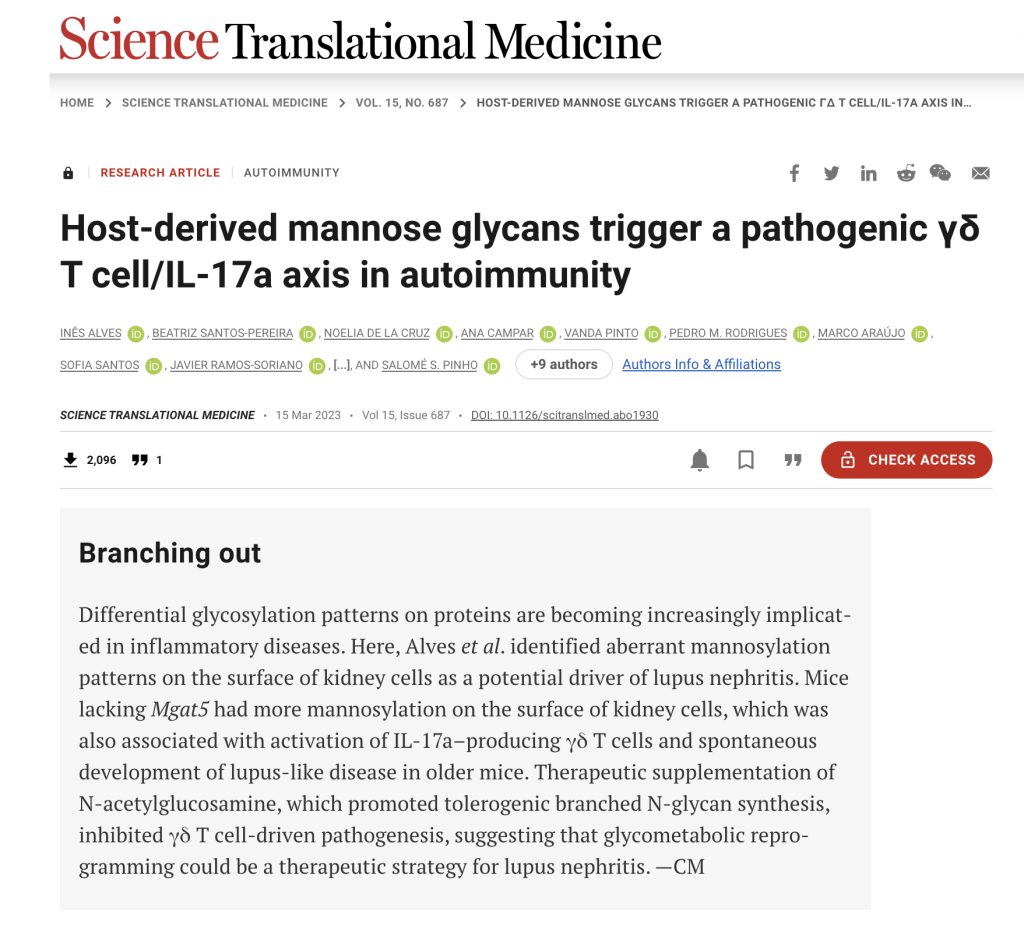Instituto de Investigação e Inovação em Saúde, Universidade do Porto
Rua Alfredo Allen, 208 4200-135 Porto, Portugal
Phone: +351 226 074 900
Email: info@i3s.up.pt
Life-threatening autoimmune diseases, including systemic lupus erythematosus (SLE), lead to increasing disability over time, but the underlying mechanisms remain elusive. Now, a new study led by our group has shed light on the role of protein glycosylation in triggering autoreactive immune responses. Our researchers discovered that microbial-associated mannose structures on the kidney’s surface activate DC-SIGN-expressing γδ T cells, leading to a pathogenic interleukin-17a (IL-17a)-mediated autoimmune response. Additionally, we showed that mice lacking Mgat5, which has an abundance of mannose structures, spontaneously developed lupus as they aged. Encouragingly, N-acetylglucosamine supplementation inhibited γδ T cell infiltration and controlled disease development, offering a potential therapeutic strategy for treating autoimmune diseases. This work marks a significant step forward in understanding and potentially treating these debilitating conditions.
